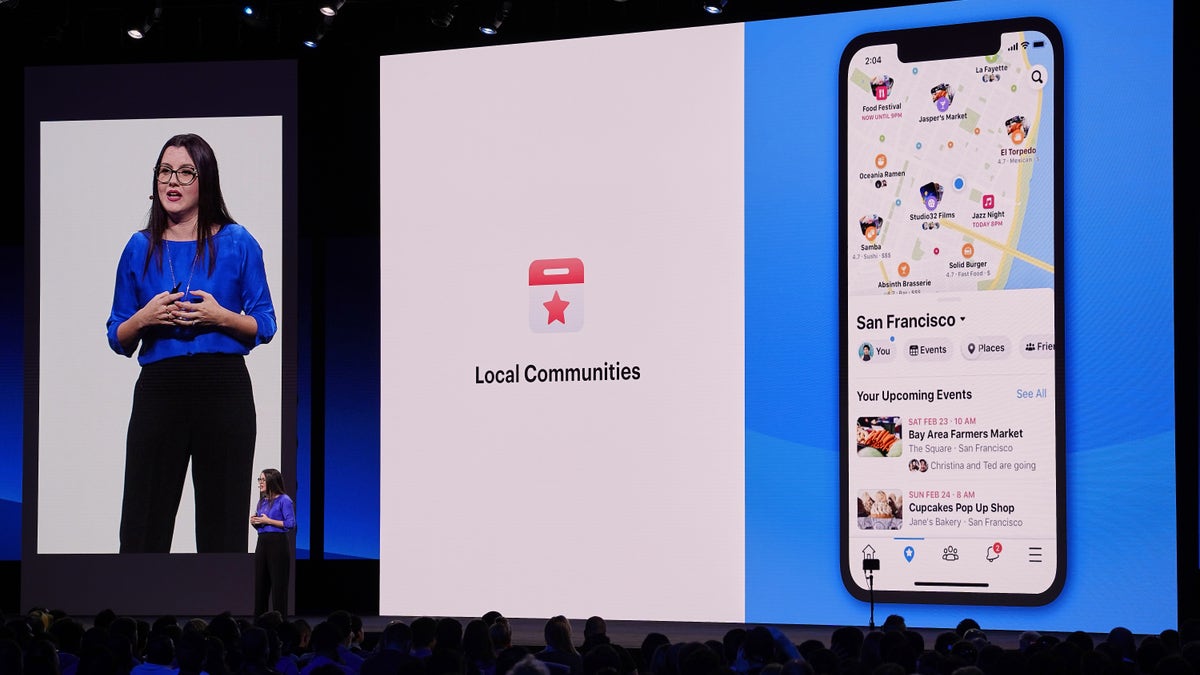
Fidji Simo, Head of the Facebook App, speaks at F8 in San Jose, California. (Facebook)
Facebook Inc. rolled out a substantial redesign of its website and mobile app, as Chief Executive Mark Zuckerberg seeks to address criticism of the social-media giant’s influence by nudging users toward different types of engagement and more private communication tools.
The end result is a platform with more emphasis on private groups and visual stories, and less on the News Feed where abusive content and polarization took root in recent years.
One casualty of the changes: the iconic blue Facebook banner that has appeared atop screens since the social network’s 2004 debut.
Mr. Zuckerberg said in an interview that the changes unveiled Tuesday mark the most significant alteration to Facebook’s core platform in five years and are part of a larger effort to offer less-public ways of communicating. “Groups are at the heart of the app, not just friends,” he said.
SAMSUNG UNVEILS A VERTICAL TV FOR MILLENNIALS
On Tuesday, at Facebook’s annual F8 conference for developers, he acknowledged skepticism of his ability to tackle the privacy issues that have dogged the company for years.
“I get that a lot of people aren’t sure that we’re serious about this,” Mr. Zuckerberg said. “I’m sure we’ll keep on unearthing old issues for a while, so it may not feel like we’re making progress at first.”
Facebook’s redesigned mobile app went live Tuesday, while users will see the updated website in a few weeks.
Mr. Zuckerberg said the changes are part of the broad rethinking of Facebook’s product design, priorities and even values that he has touted over the last two months. In early March, he said the company would focus on more private communications, embracing encrypted and ephemeral messaging across its products and guiding its Facebook, WhatsApp and Instagram platforms toward similar sets of features.
APPLE SAYS PARENTAL CONTROL APPS WERE PULLED FOR SECURITY REASONS
Facebook is cultivating groups as it shifts toward relying more on users to help police content and prevent harassment. Group administrators, not Facebook, are already front-line moderators of behavior within their often closed forums. The company is also adding new resources, including a tool that flags violations of Facebook standards to groups’ moderators, said Fidji Simo, the recently appointed head of the Facebook App.
Expanding the role of users in policing behavior on Facebook could relieve some pressure on the company to do so—after it has spent billions of dollars in recent years to hire contract moderators and build artificial-intelligence systems to screen for abusive content.
Click here for more from The Wall Street Journal, where this story first appeared.








































